Al-Ghazali On Vigilance & Self-Examination
By: Abu Hamid Al-Ghazali
-
Rs 630.00
- Rs 700.00
- 10%
You save Rs 70.00.
Due to constant currency fluctuation, prices are subject to change with or without notice.
In this work from the Revival of the Religious Sciences, Abu Hamid l-Ghazali builds on the previous chapter of Intention, Sincerity & Truthfulness with the qualities that support good intention. While this present work is entitled Vigilance and Self-examination, the main virtue steadfast commitment (murabata); vigilance and self-examination being two of its stations. Ghazali refers to the Qur an and states that God has enjoined upon creation patience and steadfast commitment and that the latter is made up of six stations: agreeing the conditions he soul must follow (musharata), vigilance (muraqaba), self-examination muhasaba), punishment (mu aqaba), renewed striving (mujahada) and, Finally, censure (mu ataba). Of these six stations, Ghazali gives particular attention to vigilance and self-examination which he considers to be the cornerstones of steadfast commitment. The Islamic Texts Society has also included a translation of Imam Ghazali s own Introduction to the Revival of the Religious Sciences which gives the reasons that caused him to write the work, the structure of the whole of the Revival and places each of the chapters in the context of the others.
In this work from the Revival of the Religious Sciences, Abu Hamid l-Ghazali builds on the previous chapter of Intention, Sincerity & Truthfulness with the qualities that support good intention. While this present work is entitled Vigilance and Self-examination, the main virtue steadfast commitment (murabata); vigilance and self-examination being two of its stations. Ghazali refers to the Qur an and states that God has enjoined upon creation patience and steadfast commitment and that the latter is made up of six stations: agreeing the conditions he soul must follow (musharata), vigilance (muraqaba), self-examination muhasaba), punishment (mu aqaba), renewed striving (mujahada) and, Finally, censure (mu ataba). Of these six stations, Ghazali gives particular attention to vigilance and self-examination which he considers to be the cornerstones of steadfast commitment. The Islamic Texts Society has also included a translation of Imam Ghazali s own Introduction to the Revival of the Religious Sciences which gives the reasons that caused him to write the work, the structure of the whole of the Revival and places each of the chapters in the context of the others.
Al-Ghazali on Vigilance and Self-examination: Book XXXVIII of the Revival of the Religious Sciences
By: Abu Hamid Al-Ghazali
Rs 2,417.25 Rs 4,395.00 Ex Tax :Rs 2,417.25
Al-Ghazali on the Manners Related to Eating
By: Abu Hamid Al-Ghazali
Rs 2,096.25 Rs 2,795.00 Ex Tax :Rs 2,096.25
Al-Ghazzali on Patience and Thankfulness
By: Abu Hamid Al-Ghazali
Rs 6,115.50 Rs 6,795.00 Ex Tax :Rs 6,115.50
Al-Ghazali Invocations & Supplications
By: Abu Hamid Al-Ghazali
Rs 810.00 Rs 900.00 Ex Tax :Rs 810.00
Al-Ghazali Love, Longing Intimacy And Contentment
By: Abu Hamid Al-Ghazali
Rs 990.00 Rs 1,100.00 Ex Tax :Rs 990.00
Al-Ghazali On Condemnation Of Pride And Self-Admiration
By: Abu Hamid Al-Ghazali
Rs 810.00 Rs 900.00 Ex Tax :Rs 810.00
Al-Ghazali On Disciplining The Soul: Breaking The Two Desires
By: Abu Hamid Al-Ghazali
Rs 1,259.10 Rs 1,399.00 Ex Tax :Rs 1,259.10
Zubin Mehta: A Musical Journey (An Authorized Biography)
By: VOID - Bakhtiar K. Dadabhoy
Rs 472.50 Rs 1,050.00 Ex Tax :Rs 472.50
Al-Ghazali On Disciplining The Soul: Breaking The Two Desires
By: Abu Hamid Al-Ghazali
Rs 1,259.10 Rs 1,399.00 Ex Tax :Rs 1,259.10
Al-Ghazali The Remembrance Of Death And The Afterlife
By: Abu Hamid Al-Ghazali
Rs 1,260.00 Rs 1,400.00 Ex Tax :Rs 1,260.00
The Decline and Fall of the Roman Empire (Classics of World Literature)
By: Edward Gibbon
Rs 2,065.50 Rs 2,295.00 Ex Tax :Rs 2,065.50
The House of Wisdom - How the Arabs Transformed Western Civilization
By: Jonathan Lyons
Rs 2,141.75 Rs 3,295.00 Ex Tax :Rs 2,141.75
Myths Illusions and Peace: Finding a New Direction for America in the Middle East
By: Dennis Ross
Rs 985.50 Rs 1,095.00 Ex Tax :Rs 985.50
The Origins of Political Order From Prehuman Times to the French RevolutioN
By: Francis Fukuyama
Rs 3,505.50 Rs 3,895.00 Ex Tax :Rs 3,505.50
Manning Up: How the Rise of Women Has Turned Men into Boys
By: Kay Hymowitz
Rs 646.75 Rs 995.00 Ex Tax :Rs 646.75
The Obama Syndrome: Surrender At Home War Abroad
By: Tariq Ali
Rs 1,165.50 Rs 1,295.00 Ex Tax :Rs 1,165.50
The Quest For Meaning: Developing A Philosophy Of Pluralism
By: Tariq Ramadan
Rs 1,255.50 Rs 1,395.00 Ex Tax :Rs 1,255.50
Al-Ghazali On Disciplining The Soul: Breaking The Two Desires
By: Abu Hamid Al-Ghazali
Rs 1,259.10 Rs 1,399.00 Ex Tax :Rs 1,259.10
Al-Ghazali The Remembrance Of Death And The Afterlife
By: Abu Hamid Al-Ghazali
Rs 1,260.00 Rs 1,400.00 Ex Tax :Rs 1,260.00
The Decline and Fall of the Roman Empire (Classics of World Literature)
By: Edward Gibbon
Rs 2,065.50 Rs 2,295.00 Ex Tax :Rs 2,065.50
The House of Wisdom - How the Arabs Transformed Western Civilization
By: Jonathan Lyons
Rs 2,141.75 Rs 3,295.00 Ex Tax :Rs 2,141.75
No recently viewed books available at the moment.
Zubin Mehta: A Musical Journey (An Authorized Biography)
By: VOID - Bakhtiar K. Dadabhoy
Rs 472.50 Rs 1,050.00 Ex Tax :Rs 472.50
Al-Ghazali on Vigilance and Self-examination: Book XXXVIII of the Revival of the Religious Sciences
By: Abu Hamid Al-Ghazali
Rs 2,417.25 Rs 4,395.00 Ex Tax :Rs 2,417.25
Al-Ghazali on the Manners Related to Eating
By: Abu Hamid Al-Ghazali
Rs 2,096.25 Rs 2,795.00 Ex Tax :Rs 2,096.25
Al-Ghazzali on Patience and Thankfulness
By: Abu Hamid Al-Ghazali
Rs 6,115.50 Rs 6,795.00 Ex Tax :Rs 6,115.50
Al-Ghazali Invocations & Supplications
By: Abu Hamid Al-Ghazali
Rs 810.00 Rs 900.00 Ex Tax :Rs 810.00
Al-Ghazali Love, Longing Intimacy And Contentment
By: Abu Hamid Al-Ghazali
Rs 990.00 Rs 1,100.00 Ex Tax :Rs 990.00
Al-Ghazali On Condemnation Of Pride And Self-Admiration
By: Abu Hamid Al-Ghazali
Rs 810.00 Rs 900.00 Ex Tax :Rs 810.00
Al-Ghazali On Disciplining The Soul: Breaking The Two Desires
By: Abu Hamid Al-Ghazali
Rs 1,259.10 Rs 1,399.00 Ex Tax :Rs 1,259.10
Al-Ghazali On Disciplining The Soul: Breaking The Two Desires
By: Abu Hamid Al-Ghazali
Rs 1,259.10 Rs 1,399.00 Ex Tax :Rs 1,259.10
Al-Ghazali The Remembrance Of Death And The Afterlife
By: Abu Hamid Al-Ghazali
Rs 1,260.00 Rs 1,400.00 Ex Tax :Rs 1,260.00
The Decline and Fall of the Roman Empire (Classics of World Literature)
By: Edward Gibbon
Rs 2,065.50 Rs 2,295.00 Ex Tax :Rs 2,065.50
The House of Wisdom - How the Arabs Transformed Western Civilization
By: Jonathan Lyons
Rs 2,141.75 Rs 3,295.00 Ex Tax :Rs 2,141.75











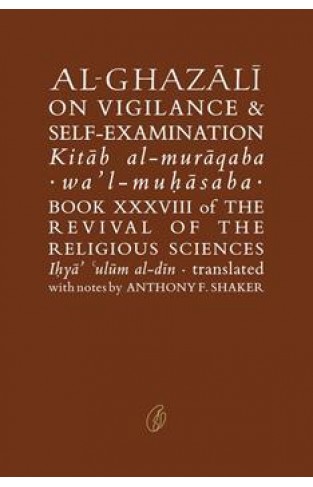
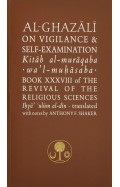
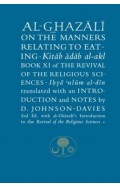
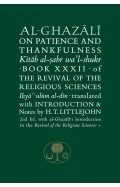

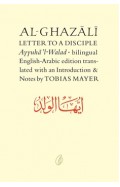
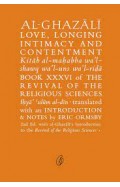
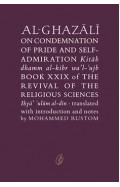
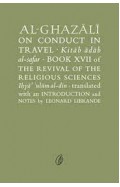
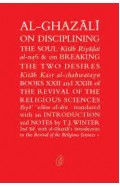
-120x187.jpg?q6)







-Paperback-120x187.jpg?q6)
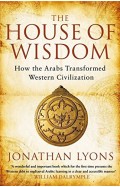


-120x187.jpg?q6)





